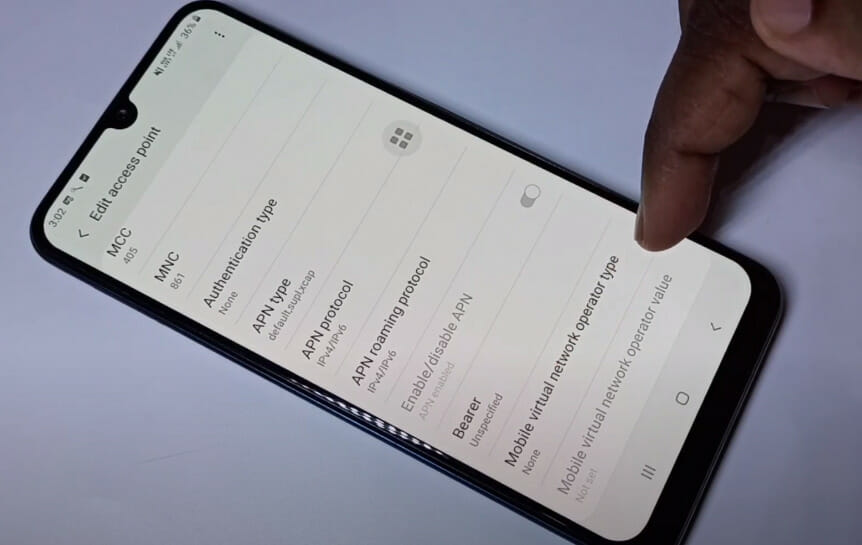While MVNOs seem recent, their origins trace back to the early 2000s.
MVNOs, or Mobile Virtual Network Operators, are the game-changers in the telecom industry. Unlike traditional providers, MVNOs don’t own infrastructure but lease network capacity, offering consumers competitive rates.
With types like Full MVNO, Light MVNO, Branded Reseller MVNO, and Wholesale MVNO, they cater to niche markets, focus on customer service, and allow flexibility.
Let’s go into detail below.

MVNO Characteristics – At a Glance
Let me tell you, there’s something cool about Mobile Virtual Network Operators (MVNOs). These guys don’t own any wireless network infrastructure but still manage to provide you with cellular services. Isn’t that fascinating?
Now, let’s dive into some key characteristics that make MVNOs unique.
| Characteristic | Description |
|---|---|
| Network Infrastructure | Operates on rented bandwidth from traditional MNOs. |
| Business Model | Operates without owning physical infrastructure. |
| Target Market | Focuses on niche markets overlooked by major carriers. |
| Customer Service | Typically offers more personalized experiences. |
| Provider Switch Flexibility | There are no long-term contracts, making switching MVNOs easier. |

Types of MVNOs
When shopping for a new mobile plan, it’s uncommon to be bombarded with terms like “wholesale MVNO,” “reseller MVNO,” and more. Please don’t get overwhelmed; I’ve simplified it below.
To begin with, there are four main types of MVNOs. Each one varies depending on their level of operation control and infrastructure investment.
First off, we have Wholesale MVNOs. These folks buy bulk network capacity from an MNO and resell it under their brand. They don’t own any physical infrastructure or systems but rely entirely on the host MNO’s infrastructure. Think of them as the middlemen in the world of mobile networks.
Next up is the Reseller MVNO. This type is similar to wholesale MVNOs in many ways – they also purchase network capacity from an MNO and sell it under their brand name. However, unlike wholesale MVNOs, resellers do not have any ownership over the subscriber SIM card or telephone number ranges.
Then we have what’s known as Service Provider MVNOS – these guys take things up a notch by handling their own billing systems and customer service operations while still relying heavily on MNO infrastructure for network services.
Finally, we’ve got Full-MVNOs, who arguably have the most skin in the game. Full-MVNOs invest in significant parts of their core network infrastructure, including the Home Location Register (HLR), besides having control over SIM cards and mobile numbers.
Here is the overview in a nutshell:
| Type of MVNO | Operational Characteristics | Infrastructure & Control |
|---|---|---|
| Full MVNO | – Operates similarly to MNOs but without radio access network – Manages billing, customer care, etc. in-house | – Owns significant parts of the network – Full control over SIM cards and mobile numbers |
| Light MVNO (Service Provider MVNO) | – Own systems for billing and customer relationship – Relies on MNO for most network services | – May manage some elements like HLR – More control over operations than reseller MVNOs |
| Branded Reseller MVNO | – Focus on sales, marketing, and brand management – Relies on MNO for services, including billing and support | – No ownership of network elements or systems – Differentiates through branding and customer service |
| Wholesale MVNO | – Acts as a middleman, buying network access in bulk and reselling | – Doesn’t own core network elements or systems – Entirely reliant on the host MNO’s infrastructure |

Advantages and Disadvantages of Each Type
Each MVNO type is tailored to a specific business model, and its viability depends on its market strategy, technical prowess, and target audience.
Let’s outline the advantages and disadvantages of each type of MVNO:
| Type of MVNO | Advantages | Disadvantages |
|---|---|---|
| Full MVNO | – Maximum control over services and offerings – Flexibility in pricing – Direct relationship with customers | – Highest setup and operational costs – Requires in-depth technical expertise and resources to manage the network |
| Light MVNO (Service Provider MVNO) | – Moderate setup costs compared to Full MVNOs – Control over some key operational aspects – More differentiation potential than resellers | – Less control than Full MVNOs – Reliance on MNO for major network services – Requires investment in specific systems |
| Branded Reseller MVNO | – Minimal setup and operational costs – Less technical expertise needed – Easier market entry | – Lowest control over technical aspects – Limited ability to differentiate services – Often thinner profit margins due to reliance on MNO pricing |
| Wholesale MVNO | – Beneficial for bulk deals and reselling to other MVNOs – Moderate control over branding and marketing | – Dependent on MNO for network quality and services – May face competition from other MVNOs for the same network access |
Frequently Asked Questions
- How do MVNOs provide cellular service without owning the infrastructure?
- MVNOs operate by leasing bandwidth and network access from traditional mobile network operators (MNOs). This allows them to offer cellular services without investing in and maintaining the costly infrastructure.
- Are services from MVNOs as good as those from traditional carriers?
- Generally, the quality of service from MVNOs is comparable to that of the main network operators since they use the same infrastructure. However, during peak times or network congestion, priority might be given to the MNO’s direct customers.
- Why are MVNO plans often cheaper than traditional carriers?
- MVNOs typically have lower overhead costs because they don’t invest in and maintain network infrastructure. They also often target niche markets or use alternative business models, allowing them to offer competitive rates.
- Can I keep my phone number if I switch to an MVNO?
- Yes, most countries have regulations for “number portability,” which allows you to keep your phone number when switching between carriers, including MVNOs.
- Will my phone work with an MVNO?
- Most unlocked phones are compatible with MVNOs, but it’s essential to check with the specific MVNO to ensure they support your device, especially regarding network bands and frequencies.
- Are MVNOs available worldwide?
- Yes, MVNOs operate in many countries around the world. Their presence and market share can vary depending on local regulations, market conditions, and the competitive landscape.
References
Studies:
- GSMA Intelligence Reports. https://www.gsmaintelligence.com/
- Telegeography’s GlobalComms Database. https://www2.telegeography.com/en/globalcomms-database-service
Video References:
Monogoto
CeLL
PortaOne

